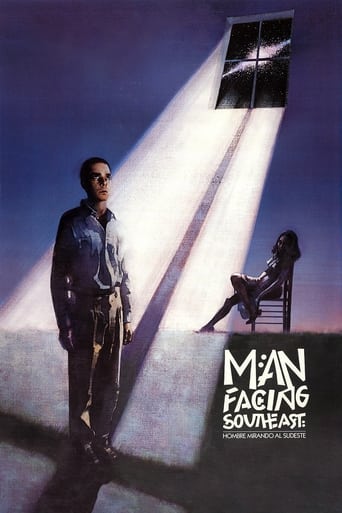

This movie is powerful and heart rending. I first saw this movie before I became a psychiatrist, and it remains one of my favorites. When I was in training, I showed it at our "Friday Night Movies with the Residents". It evoked disparate comments about the psychiatrist and the main character. It made everyone think and rethink their interpretations. It reminds me of Gabriel Garcia Marquez' One Hundred Years of Solitude because it has so many elements of Catholicism melded with South American mysticism. There are several stills that are imprinted on my brain. I have two tapes of it, one dubbed and one the original with English subtitles. I rarely watch the one with subtitles because I do not want to wear it out. I hope it is released in DVD soon because it should be shown to everyone who is training to be a mental health professional. It teaches one not to be too sure of their ideas. And not to be too certain they have analysed things correctly, or maybe, that analysing is not the compassionate way to treat patients, or people.
... View MoreLittle Miracles, Man Facing Southeast, The Dark Side of The Heart 1 and 2 are to me really amazing, specially because it is obvious the budget is too low and even though, the movies are deep, disturbing, intriguing, and yet, easy to understand (not without thinking)... Subiela is one of the few directors I can tell I've liked all what I have seen of them (Kubrik might be another, and maybe Lynch), but the only Latin one. The main question about the movie is "what if?" What if Rantes is really what he says he is? What if the doctor is the crazy and blind one? What if the other interns of the mental hospital can see what is for real, just as all the crazy people in the world? And, there are a lot of Why's also. Why do the doctor kids like Rantes so much? Why Beatriz is always changing her shoes when nobody looks at her? Why Rantes, even though is so cold loves the music so much, and for moments, makes him act as a "real human"? The details (something that I start to consider typical in Subiela are what make the movie so unique. Rantes could stay as someone totally crazy if we would not have the benefit of the doubt when we see him use his mental powers, and by the other side, the photo that Lorenzo (the doctor) finds in Beatriz's bag that is at least 10 years old, makes us think that they have not exactly just arrived to the planet. But again, why is Rantes so important for the rest of the interns in the hospital, and how does he get there? And how would his "sister" Beatriz find him if it would not be telepathy? There are two very shocking and extremely great scenes to me: The first one is when Rantes directs the orchestra playing Beethoven 9th Symphony at the same time that the interns in the hospital are celebrating -whatever they are celebrating-; and the second one is when Rantes is laying on the bed, medicated, and mutters "Dr, Dr, why have you abandoned me?"... just as Jesus said when he was crucified. Such a great metaphor.
... View MoreThose who complain about this movie being "depressing" and full of unanswered questions miss the point. An intelligent viewer must look beneath the surface; there's a clever story and a set of plot twists that await whomever is willing to make the minimum effort required to do that.The movie keeps the viewer's interest by using a series of cinematic devices and by raising questions. The important ones get answered all right, while some unimportant ones are left open. Subiela himself admitted later that there is no real reason for Beatriz's changes of shoes, or for the blue liquid coming out of her mouth. But the central theme remains that of a man that approaches sainthood (note the numerous parallels with the story of Christ) by just doing what is logical---not out of any belief from a contrived moral system.
... View MoreThis is the movie that brought recognition for the first time to Eliseo Subiela. Many times described as "ET" for adults, that cliche is both accurate and misleading. As I write this, a movie with an identical premise is being advertised in the States (K-PAX). I hope lawyers have a field day. The mysterious patient Ramses, who has suddenly appeared in this Argentinian clinic, is convinced to have come from another world. Capable of rational thought and of an apparent high IQ, a doctor begins a treatment to cure him from his dellusion. But does he need to be cured? Isn't the doctor more insane that his patient? Haven't we forgotten what it means to live and enjoy life? The movie moves slowly, but keeps itself interesting. The dialogue is sometimes too academical to be believable (even in Spanish), but its intentions are more powerful than the presentation. Except for Beethoven's Ode to Joy sequence, the movie is not very cinematic, but once again, it never feels to drag. The depiction of the asylum is also one of those you won't see in your typical Hollywood movie: as we see how the dead corpses of the inmates are carried over to be used for medical studies.
... View More